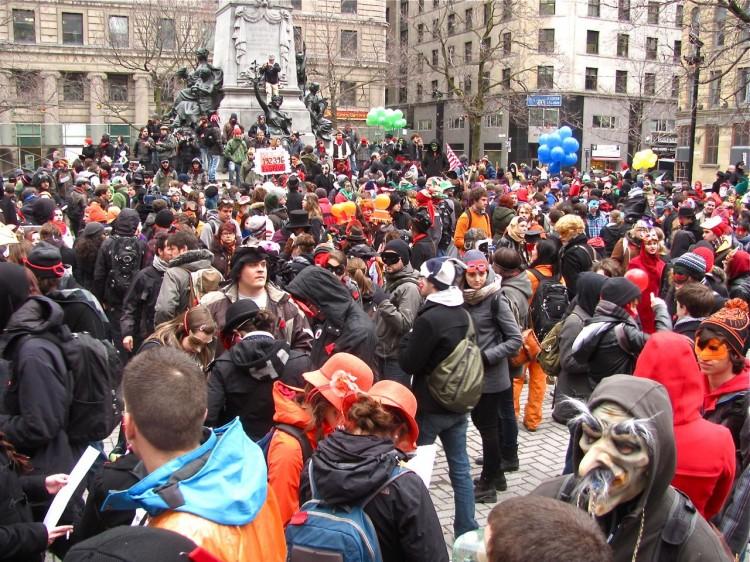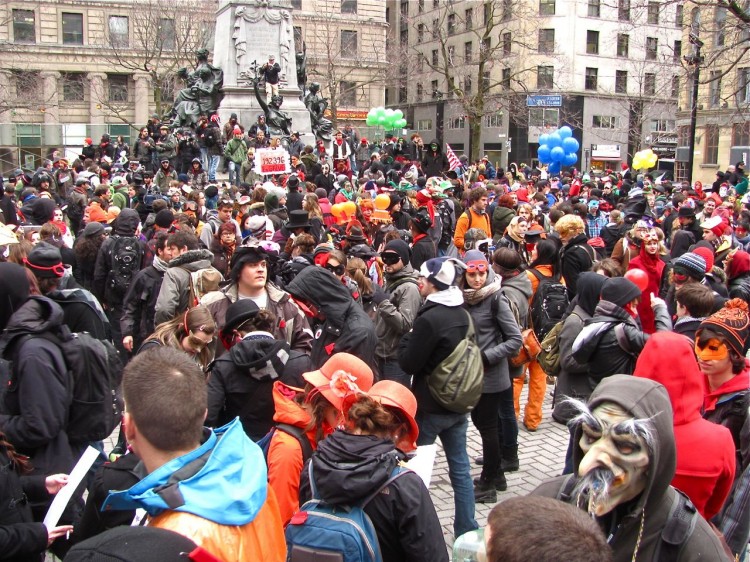A massive student protest in Quebec has seen over 165,000 students ditch class over proposed tuition increases, with tensions escalating in recent days even as support for the movement slips.
Reports Wednesday in various Quebec cities detailed street protests with Gatineau police arresting 80 people. Hundreds of students have been arrested in the protests, which began over two months ago.
On Monday, reports emerged that Montreal police are investigating incidents of vandalism at cabinet ministers’ offices. Molotov cocktails were found inside several offices.







